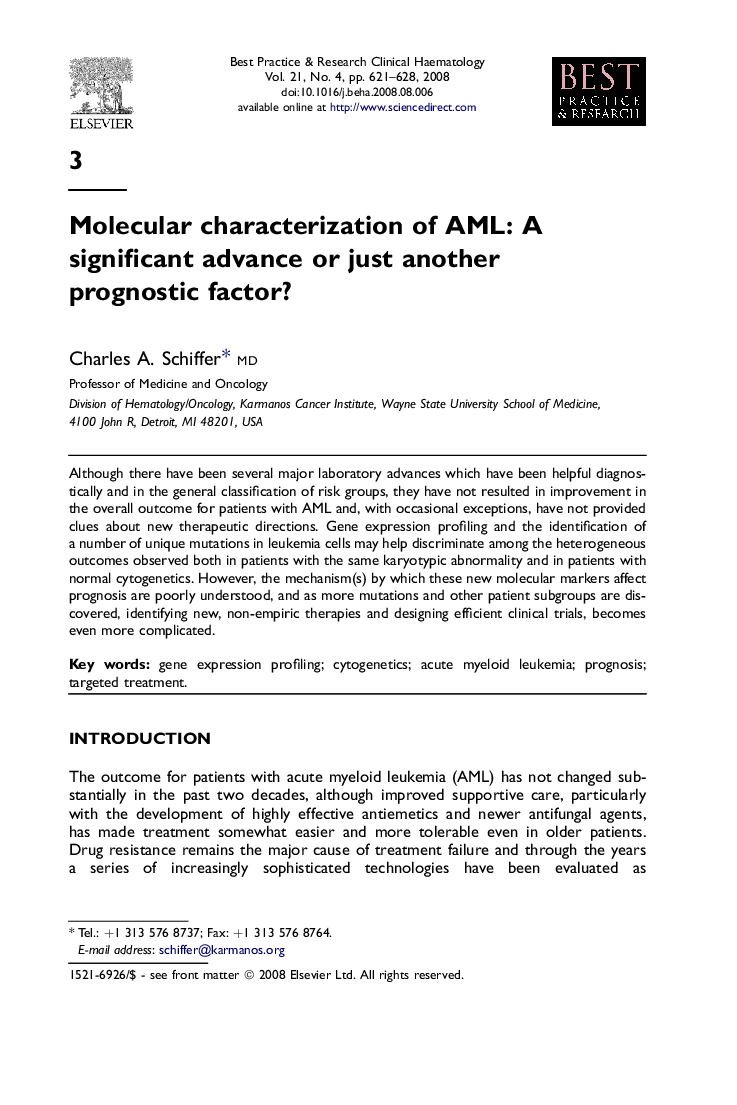| Article ID | Journal | Published Year | Pages | File Type |
|---|---|---|---|---|
| 2100767 | Best Practice & Research Clinical Haematology | 2008 | 8 Pages |
Although there have been several major laboratory advances which have been helpful diagnostically and in the general classification of risk groups, they have not resulted in improvement in the overall outcome for patients with AML and, with occasional exceptions, have not provided clues about new therapeutic directions. Gene expression profiling and the identification of a number of unique mutations in leukemia cells may help discriminate among the heterogeneous outcomes observed both in patients with the same karyotypic abnormality and in patients with normal cytogenetics. However, the mechanism(s) by which these new molecular markers affect prognosis are poorly understood, and as more mutations and other patient subgroups are discovered, identifying new, non-empiric therapies and designing efficient clinical trials, becomes even more complicated.
